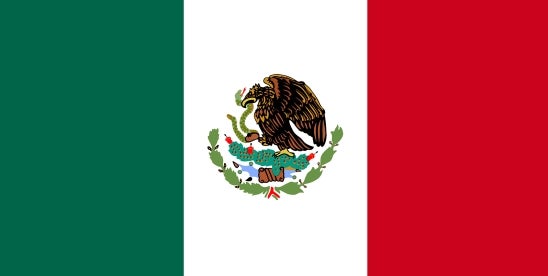Proposed Reforms to Federal Competition Law in Mexico
April 24, 2025
Overview of the Legislative Initiative
On April 24, 2025, Mexico’s Federal Executive presented the Senate with a draft initiative aimed at reforming the Federal Competition Law. This initiative introduces significant changes, encompassing a range of provisions to strengthen antitrust regulations and restructure the relevant oversight body.
Key Areas of Reform
The proposed changes are categorized into four primary areas:
- Restructuring the National Antimonopoly Commission
- Enhancing investigative powers and procedures
- Implementing regulatory adjustments
- Reforming telecommunications and broadcasting regulations
Restructuring the National Antimonopoly Commission
A pivotal aspect of the initiative is the dissolution of the Federal Economic Competition Commission (COFECE) and the establishment of a new entity: the National Antimonopoly Commission. This new agency would operate as a decentralized public institution under the Ministry of Economy, endowed with legal personhood and operational independence.
The Commission will consist of a five-member plenary, appointed by the Federal Executive and ratified by the Senate, ensuring a degree of separation between investigative and adjudicatory functions.
Strengthening Antitrust Measures
The initiative seeks to augment the tools available for addressing monopolistic practices:
- Absolute Monopolistic Practices: Proposed amendments to Article 53 will allow penalties for anti-competitive information exchanges, eliminating the need for prior agreements.
- Monopoly Concentrations: The investigation period for unlawful concentrations would extend from one year to three, with a reduction in monetary thresholds to increase reporting requirements.
- Collective Actions: These will be permissible only after a final administrative resolution is reached.
- Immunity and Fine Reduction Programs: Revisions to these programs aim to incentivize early cooperation from investigated entities.
Enhanced Penalties and Enforcement
To deter anti-competitive behaviors, penalties will be increased significantly. For instance, fines for obstructing verification visits could reach MXN $22,628,000, while failure to cooperate could incur fines of MXN $3,394,200. Overall, financial penalties will correlate with the extent of damage caused, with maximum fines reaching up to 20% of a company’s revenue for serious offenses.
Regulatory Adjustments
Additionally, the initiative includes significant revisions aimed at clarifying and enhancing regulatory frameworks:
- Verification Procedures: Legal authority will be granted for compliance verification, helping to prevent major transactions that may hinder competition from proceeding unexamined.
- Strengthened Investigative Powers: Improvements for investigation procedures will facilitate more comprehensive oversight, supported by enhanced data collection capabilities.
Key Concepts Clarified
The initiative delineates specific criteria that the National Antimonopoly Commission must consider regarding substantial market power and related market definitions. These expansions are designed to ensure that both investigations and resolutions are grounded in a detailed understanding of market dynamics, which is particularly crucial in the context of rapidly evolving sectors like digital technology.
Transparency Measures
To improve public access to proceedings, the initiative mandates the publication of stenographic records from the Commission’s plenary sessions and aims to render resolutions intelligible to a broader audience.
Reforms in Telecommunications and Broadcasting
Further provisions will regulate cross-participation in telecommunications and broadcasting sectors in compliance with constitutional mandates. The National Antimonopoly Commission will oversee measures to limit frequency concentration, potentially necessitating asset divestitures to maintain competitive balance.
Conclusion
The proposed reforms are intended to establish a stronger legal framework to address anti-competitive practices and enhance competition within the Mexican market. The National Antimonopoly Commission is anticipated to begin operations by July 1, contingent on congressional approval of the amendments and the appointment of its commissioners.

